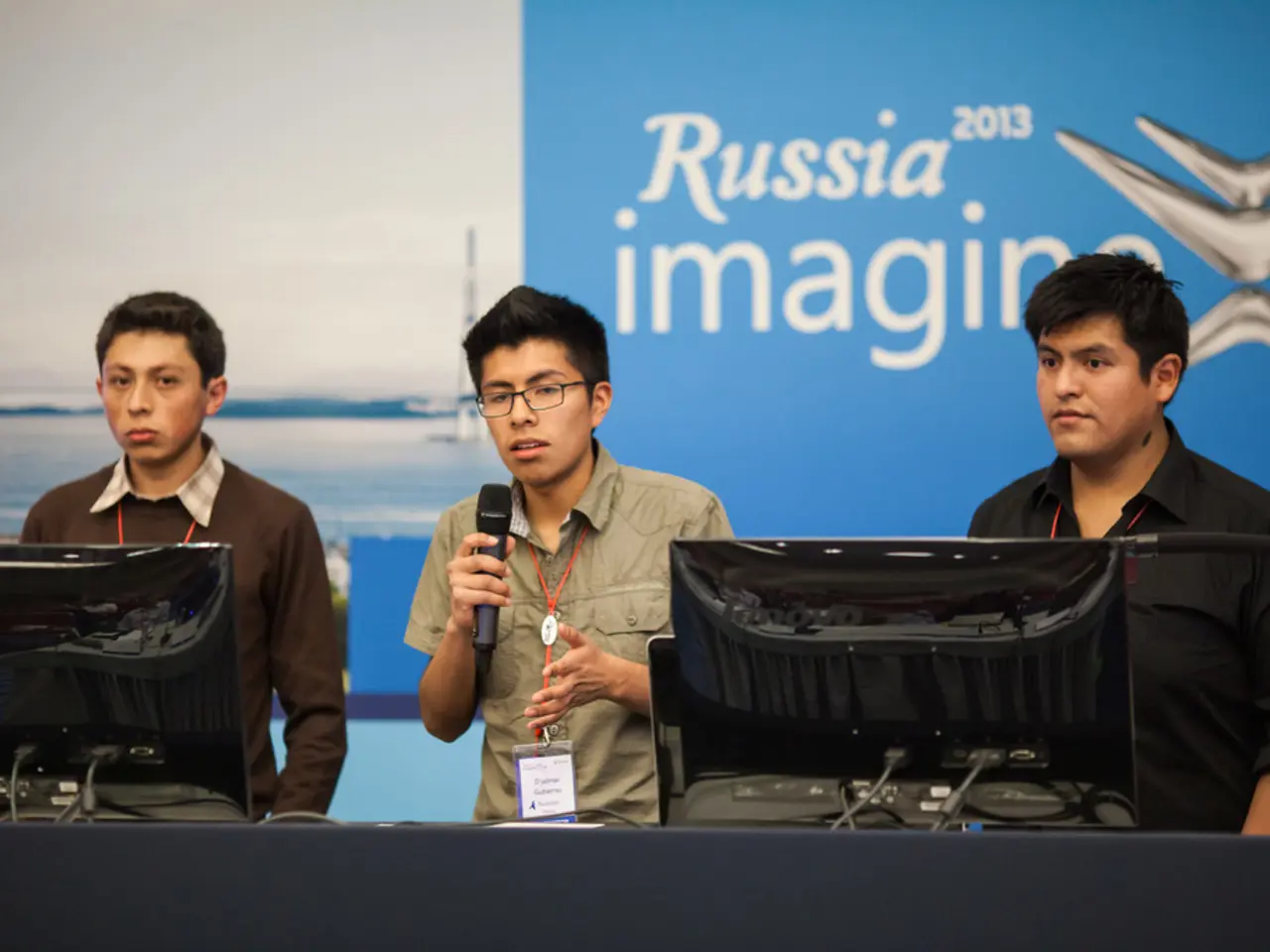Government's Digital Department has devised a plan for granting mobile internet access under limited circumstances
In a recent announcement at the "Digital Evolution" conference in Kaluga, Maksut Shadaev, the head of the Ministry of Digital Development, revealed a new technical scheme aimed at ensuring Russian citizens can still access essential services during internet restrictions.
The scheme, prepared in collaboration with telecom operators, involves partial or indefinite shutdowns of mobile internet connections in various regions, justified by authorities as preventive measures against security threats such as drone attacks and sabotage.
Regarding services on the whitelist, the Russian authorities have pushed citizens away from commonly used foreign messaging services like WhatsApp and Telegram, particularly restricting voice calls via these apps, labeling them as tools for crime, extortion, and terrorism involvement. Instead, the government promotes switching to a newly introduced, state-controlled "super app" called Max, developed by VK (formerly VKontakte), which is pre-installed on smartphones sold in Russia and is heavily monitored and integrated with government services.
The whitelist includes marketplaces, delivery services, and taxis, among other essential services. However, the minister did not specify which services would be included in the whitelist for foreign SIM cards. He stated that the whitelist includes "any widely used services."
Separately, all matters related to M2M networks (machine-to-machine interaction) will be separately specified. The minister did not specify whether the limitations for foreign SIM cards entering Russia would apply to all telecom operators.
Under this scheme, users with foreign SIM cards entering Russia can access essential services like taxis and make calls using a captcha. By default, foreign SIM cards entering Russia will be limited to 5 hours of access to mobile internet. However, the minister did not specify whether the cooling off period for foreign SIM cards can be extended.
The technical scheme is designed to be implemented when internet blocking occurs. Separately, foreign SIM cards entering national roaming in Russia will have separate periods of cooling off specified. The limitations for foreign SIM cards entering Russia are designed to ensure the functioning of ATMs, payment terminals, and other devices.
The announcement was reported by TASS. This represents a broader Russian government strategy to control internet traffic, communication channels, and access by limiting or blocking foreign technologies and controlling mobile internet access under national security pretenses.
In the context of Russian citizens utilizing essential services during internet restrictions, the new technical scheme will allow users with foreign SIM cards to access services like taxis and make calls using a captcha, while being limited to 5 hours of mobile internet access by default. Moreover, the scheme emphasizes the use of domestic technology, such as the state-controlled "super app" Max, instead of foreign messaging services like WhatsApp and Telegram.




